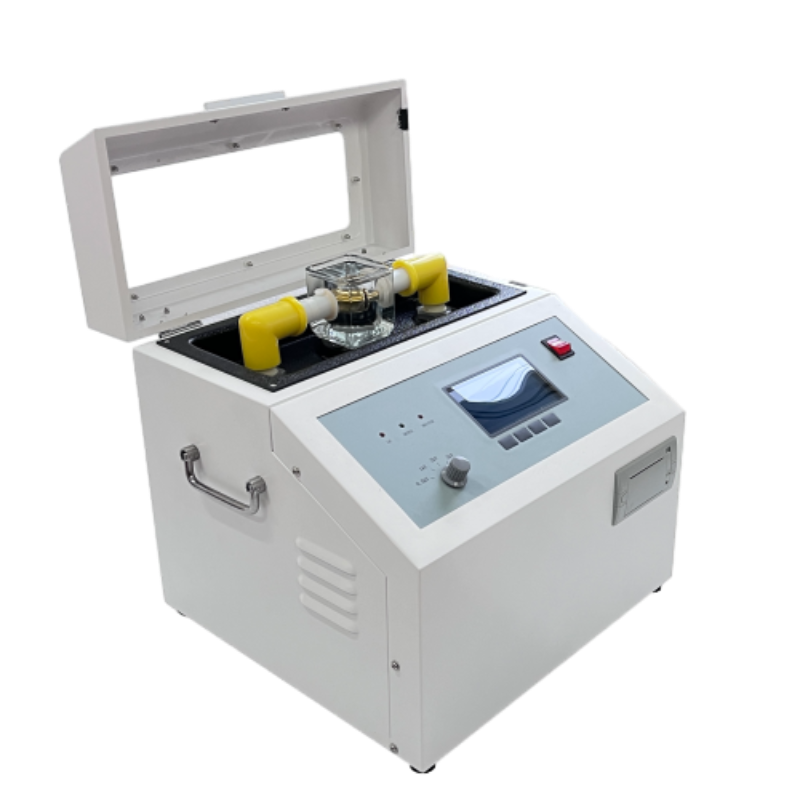 English
English


distillation tester
Understanding Distillation Testers The Key to Quality Control in Distillation Processes
Distillation is a fundamental process in various industries, including petrochemicals, pharmaceuticals, and beverages. The efficacy of distillation heavily relies on precise measurements and control over various parameters. One of the crucial tools employed in this process is the distillation tester, which plays an essential role in ensuring quality control and optimizing production efficiency.
What is a Distillation Tester?
A distillation tester is an analytical instrument designed to evaluate the distillation properties of liquids. These testers measure the boiling points and the distillation curves of liquid mixtures, which are critical for understanding their composition and behavior during the distillation process. Commonly used in laboratories, quality assurance programs, and production facilities, distillation testers can provide valuable insights that help in the formulation of products and in maintaining product consistency.
Importance of Distillation Testing
1. Quality Assurance In industries such as petrochemicals and pharmaceuticals, the purity of the final product is paramount. Distillation testing allows manufacturers to ensure that the distillation process effectively separates desired components from impurities. This assurance helps maintain safety and compliance with regulations.
2. Process Optimization By analyzing the distillation curve, operators can identify the optimal conditions for mass transfer and separation. This analysis helps reduce energy costs and improve yields, making the distillation process more efficient.
3. Product Characterization Different products have unique distillation profiles. By using a distillation tester, manufacturers can characterize their products and ensure they meet specified standards. This helps in product development and formulation, especially for complex chemical mixtures.
4. Troubleshooting Distillation testers provide vital data that can be used to troubleshoot issues within the distillation process. By comparing current measurements with historical data, operators can identify potential problems early, minimizing downtime and losses.
Types of Distillation Testers
There are several types of distillation testers, each designed for specific applications
distillation tester

1. Simple Distillation Apparatus This is the most basic form of distillation testing, suitable for determining boiling points and basic qualitative assessments.
2. Fractional Distillation Column Used for more complex mixtures, this apparatus allows for the analysis of components based on their boiling point ranges, providing a detailed distillation curve.
3. Azeotropic Distillation Testers These specialized testers are designed for handling mixtures that exhibit azeotropic behavior, where components boil at a constant temperature. Understanding azeotropes is vital in industries such as alcohol production.
4. Automatic Distillation Testers Incorporating advanced technology, these testers can automate the distillation process, providing real-time data analysis and reducing the potential for human error.
Best Practices in Using Distillation Testers
1. Calibration Regular calibration of the distillation tester is critical to ensure accuracy. This involves using standard reference materials to verify the performance of the equipment.
2. Sample Preparation Proper sample preparation is essential for obtaining reliable results. This includes ensuring uniformity in sample size and composition to avoid variability in testing outcomes.
3. Environmental Control Factors such as temperature and pressure can significantly influence distillation results. Conducting tests in controlled environments helps mitigate these effects.
4. Data Interpretation Understanding and correctly interpreting the data generated by distillation testers is crucial. Operators should be trained in data analysis to make informed decisions during the distillation process.
Conclusion
In conclusion, distillation testers are invaluable tools in various industries reliant on distillation processes. By enabling accurate measurement of distillation properties, these instruments ensure product quality, optimize production efficiency, and aid in troubleshooting. As technology advances, the sophistication of distillation testers continues to grow, integrating features such as automation and real-time data analysis. For organizations committed to maintaining high-quality standards in their products, investing in a reliable distillation tester is crucial for success in a competitive marketplace.
-
Differences between open cup flash point tester and closed cup flash point testerNewsOct.31,2024
-
The Reliable Load Tap ChangerNewsOct.23,2024
-
The Essential Guide to Hipot TestersNewsOct.23,2024
-
The Digital Insulation TesterNewsOct.23,2024
-
The Best Earth Loop Impedance Tester for SaleNewsOct.23,2024
-
Tan Delta Tester--The Essential Tool for Electrical Insulation TestingNewsOct.23,2024





